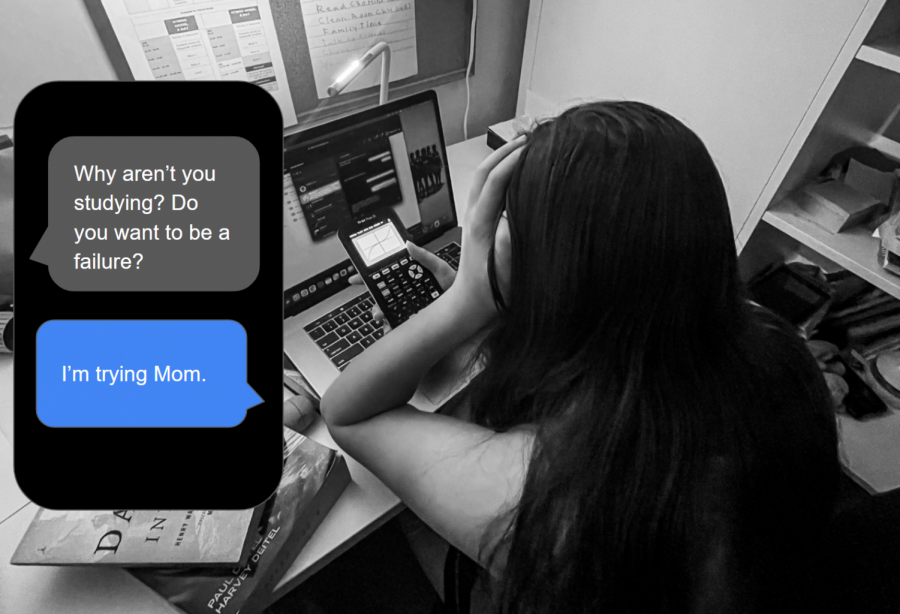“Which colleges are you applying to?”
As a senior, I’ve been asked that question about 500 times. Maybe more. After all, in today’s world, a teenager’s success seems to be defined by the college they end up at.
At this point, the college application process has become a science. A formula, if you will. Take Advanced Placement (AP) classes, score well on the AP tests, get good grades, have outstanding extracurricular activities, get a good SAT score, and last but not least, write great essays to reflect all of the above. If you follow this formula, colleges will accept you, and you will be considered a success. Right?
Well, most parents seem to believe that. So they take it upon themselves to push their kids to attain the components of this formula. However, parents with good intentions will often overstep the boundary between motivating and being a helicopter parent without realizing it.
While there are many different definitions for a helicopter parent, I am focusing on when a parent gets excessively involved in their student’s life, specifically in their academics. They “hover” over their child and constantly berate them about school.
When their kids are juniors and seniors, many parents inadvertently take on the stress of the college admissions process. They subsequently release that stress onto their kids as a form of motivation, not realizing that it adds excessive pressure on the child.
Now, I am by no means saying that you should back off entirely and sit around while your students take on their last years of high school. Motivating your child is a great way to demonstrate your involvement and show that you care. Just make sure to do it in a healthy way.
According to a study conducted by Arizona State University, students whose parents put too much pressure on them “experienced more internalizing symptoms, such as depression and anxiety, externalizing or acting out behaviors and lower self-esteem… and paradoxically given their parents’ high emphasis on achievements, these students also had lower GPAs.”
In fact, one study found that children who faced relentless pressure from their parents to succeed were twice as likely to suffer from anxiety and depression than their less-pressured peers.
On the other hand, some might argue that their children need a significant amount of incentive to be on top of things, and without it, they would be falling behind. If that is the case, then, by all means, supply that extra motivation! Many kids require that extra push from parents to achieve their full capabilities. That being said, it is crucial to know where to draw the line between healthy involvement and hovering.
As stated previously, parents typically don’t cross over the boundary to helicopter parenting on purpose, raising the question: “How do you know where to draw the line?”
There is no easy answer to this other than to communicate with one another openly. Or, if you notice depressive symptoms or a downturn in your child’s mental health, talk to them and ask how they are feeling or if they need any extra support.
Ultimately, parents, please remember: academic involvement is great. Just make sure to do it in a healthy way. Otherwise, your child’s mental health may decline.
If you are struggling at home, please remember Students Offering Support (SOS) is a great resource. To contact them, you can email Ms. Bustamante (sbustamante@seq.org).












